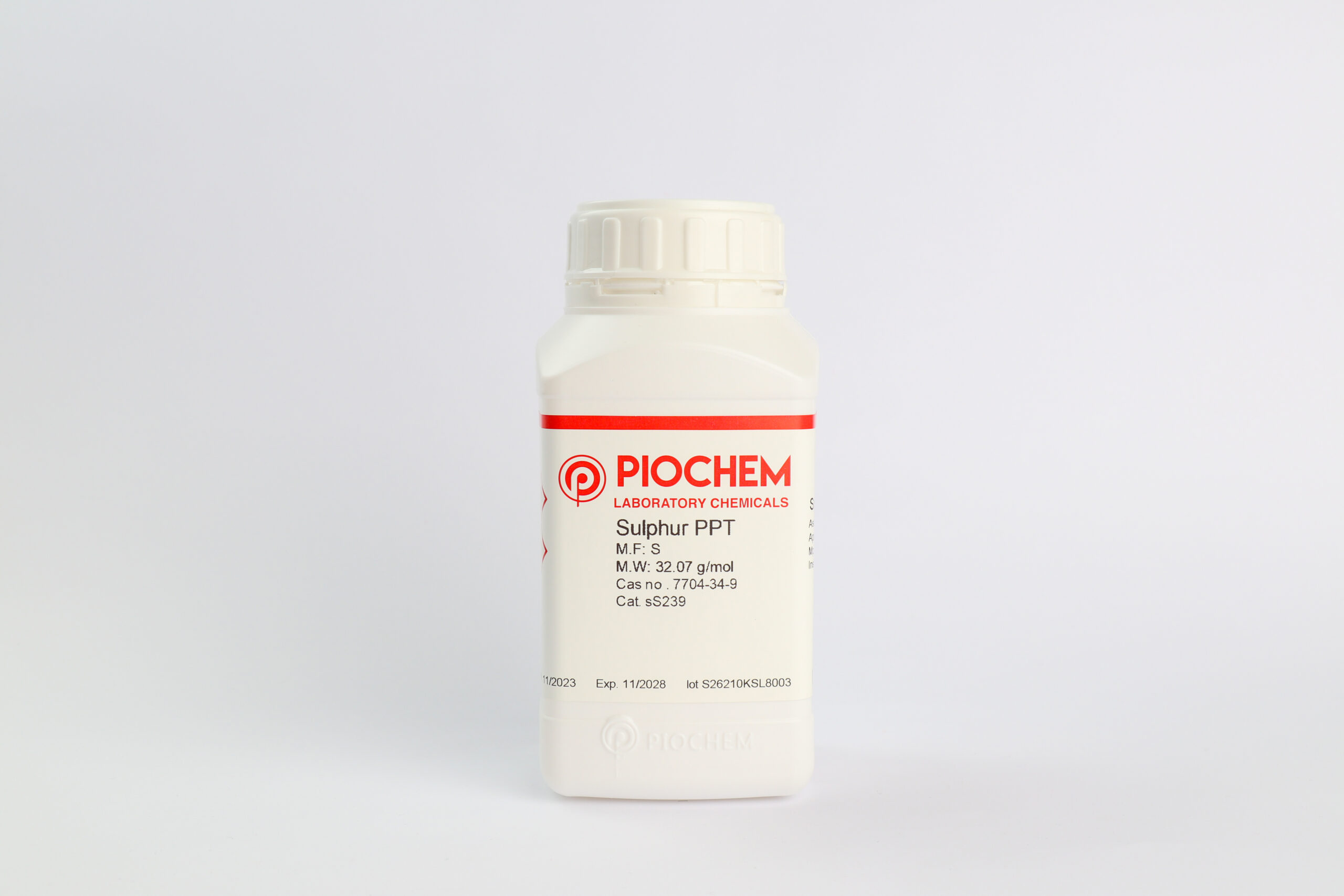Sulfur is an ingredient of various cosmetic preparations for its keratolytic, antifungal, and antibacterial properties. It belongs to the class of inorganic compounds which containing a sulfur atom of an oxidation state of -2, in which the heaviest atom bonded to the oxygen belongs to the class of other non-metals.
Precipitated sulfur is used in a variety of applications, including:
- Rubber: Precipitated sulfur is used as a vulcanizing agent in rubber. Vulcanization is a process that makes rubber stronger and more durable.
- Dyestuffs: Precipitated sulfur is used as a pigment in dyestuffs. Dyestuffs are used to color fabrics and other materials.
- Pharmaceuticals: Precipitated sulfur is used in some medications, such as laxatives and anti-inflammatories.
- Cosmetics: Precipitated sulfur is used in some cosmetics, such as facial masks and soaps for the treatment of acne vulgaris, acne rosacea, and seborrhoeic dermatitis. Intended for local use only, no systemic absorption.
- Agriculture: Precipitated sulfur is used as a fungicide and insecticide.
Precipitated sulfur is a safe and non-toxic substance. It is not flammable or explosive. However, it can be irritating to the skin and eyes.
Here are some of the benefits of using precipitated sulfur:
- It is a natural substance.
- It is non-toxic and safe to use.
- It is inexpensive and easy to find.
- It has a variety of uses.
Here are some of the drawbacks of using precipitated sulfur:
- It can be irritating to the skin and eyes.
- It can be dusty and difficult to handle.
- It can lose its effectiveness over time.





Reviews
There are no reviews yet.